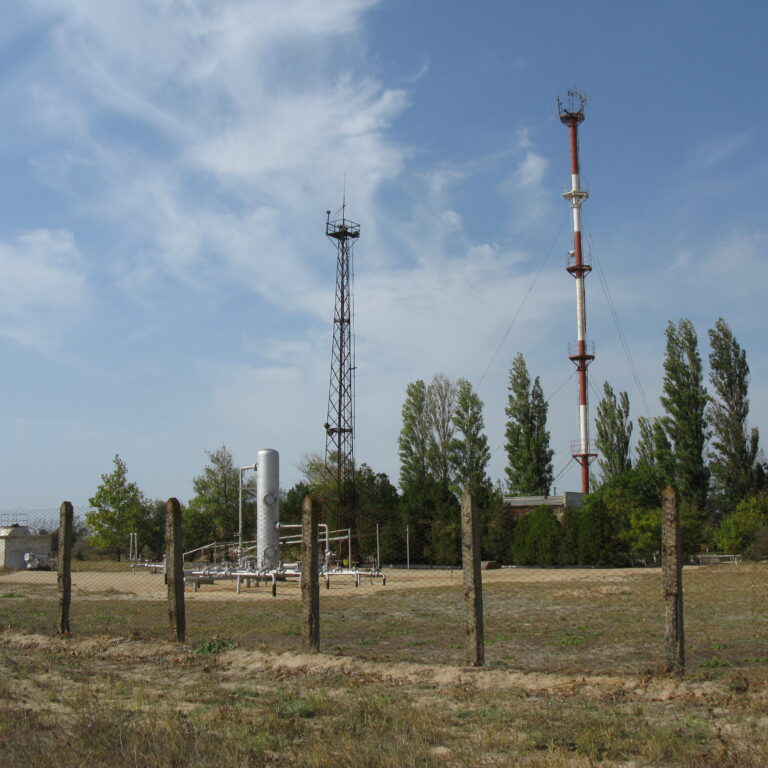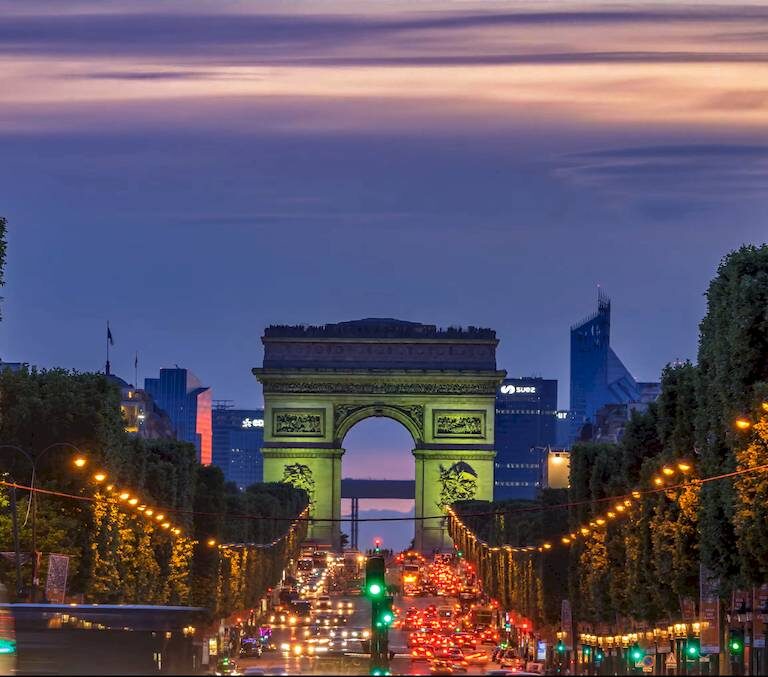Our Association has written a lot about individual French politicians, “bogged down”, to one degree or another, in the intrigues of the Russian secret services and caught in the “honey trap” of the criminal “Crimean work” of the Kremlin.
But sometimes it’s worth going from the particular to the general in order to predict – how and what in the future, not only in the “world after Yalta”, but also in the “world after Bucha”, French speech can be heard at the “Kremlin banquets”.
As Spanish Prime Minister Pedro Sanchez recently put it, the Russian dictator has “many allies in Europe who now hide their sympathy and ties to Putin, but who only a year ago visited him and praised his methods”.
Sanchez urged the world to fight “the rotten seeds that Putin sowed”, but which windmills will grind these “grapes of wrath” and how to find an antidote for “those who have eaten this bread” is clearly not a question for one politician, and not only to the south of Pyrenees.
In order to understand the specifics of the very strange “feelings” of individual French figures for the “mysterious Russian soul”, it is necessary to look into the past, however, not so distant, which was what Professor Boris Babin, an expert of the Association, tried to do.
However, our task was somewhat simplified by Professor Marlene Laruelle from George Washington University, who devoted a number of extensive studies to the origin of this golem, as well as popular essays.
As Professor Laruelle points out for “The Convesration”, back in the 60s of the 20th century, a veteran of the wars in Indochina and Algeria, an officer of the Foreign Legion and French military intelligence, a member of parliament from various parties, a monarchist and the initiator of the rehabilitation of World War II collaborators Jean Marie Le Pen meets with Ilya Glazunov.
The reason for the trip of the Russian “oppositionist” and anti-Semitic artist to Paris was thought up by his curators from the KGB quite extravagantly – Glazunov was going to “paint a portrait of De Gaulle”.
Instead, Glazunov developed “purely professional” ties with Le Pen, who, after the “erosion” of Gaullism, tried to seize the initiative in a “dialogue with Moscow”.
On the one hand, it looks tragicomic when Le Pen, half blind from a fight with the communists since 1958, began his “long dance” with Soviet structures, but in fact there is no paradox here.
Yes, Le Pen is as far from Marxism as Putin is from his former Soviet boss Andropov, but they all have one thing in common – a deep hatred of democracy as a supposedly “wrong form of life”.
The political fabric of France, and we will return to this repeatedly, is full of such “skeletons from the part”. The current Bonapartists or Royalists are not only and not so much cinema characters, but also quite real, and often extremely influential politicians and businessmen, sometimes squeamishly changing “bourgeois parties” like gloves, within which they legalize their “position in society”.
However, Le Pen, having “suffered” enough from the change of “party signs”, decided to acquire his own “political mitten”, creating his own “National Front” back in 1972.
And although for many decades this political force was marginal, already in 2022 the entire democratic world was watching the final of the presidential election campaign – both Emmanuel Macron and Le Pen’s daughter.
And, today, when the “rebranded” “National Rally” strives to acquire new “public leaders”, about whom much will be said, Le Pen is not only alive and tweeting, and what’s more, with all his anti-Americanism, no one is going to block him there.
Le Pen still remains the “godfather” or “patriarch” of a system that has metastasized into many other “bourgeois parties”. After all, as mentioned above, for the “real royalists” all this is just external paraphernalia, their goals are completely different.
However, not only Le Pen in his “front” had some kind of “Russian experience”. Suffice it to recall that his colleague in the movement, the late monarchist and journalist Jean-François Chiappe, was married to the daughter of an emigrant Anton Denikin, Marina, who took the pseudonym Gray even before it became mainstream.
As Professor Laruelle adds, another of Le Pen’s late far-right associates, recalls, the late Jean-Pierre Stirbois was extremely interested in “Russian solidarism” as a tools of “fighting communism”.
Therefore, one should not be surprised that even before the final fall of the “Iron Curtain” in Paris, “dear” guests in every sense of the word frequented the “front members”.
For example, Le Pen did not disdain to communicate closely with the “political emigrant” and “victim of the Soviet regime” Eduard Limonov, who moved from the United States in 1980, away from the thoughtful views of the FBI, to “liberal France”.
As Vladimir Kryuchkov, the right hand of the same Andropov, later admitted, it was he who actively worked on the “link” of the French “extreme right” with the Soviet-Russian “creative intelligentsia” of various “levels of freshness”.
For example, the now well-known Alexander Dugin interviewed Le Pen for the Den’ newspaper while still a young and unknown fringe journalist.
Well, then begins the “touching friendship” between Le Pen and Vladimir Zhirinovsky, which grew into a series of “courtesy visits”, and another odious Russian chauvinist Sergei Baburin participated in the Paris meetings of “National Front”.
Therefore, when, in 2011, Marine Le Pen received from her father the “reins of government” of the “Front and its members,” the close “Russian ties” of her family determined the “foreign policy” of the right-wing radicals for a long time.
The occupation of Crimea did not change this rhetoric much, but rather the opposite – it sharpened the confrontation within the right-wing French politicians, who did not “appreciate” the consistent and often irrational “Russophilia” of both Le Pens.
But the large-scale Russian aggression in 2022 somewhat “shifted the sight”, and many figures of the “National Rally” stopped at least publicly demonstrating support for the Kremlin.
However, they delegated this matter to their unsinkable “patriarch”, since the elder Le Pen, who has long outlived most of his political “friends” and “partners”, does not consider it necessary to restrain himself in any way.
On February 27, 2022 in the early days of the Russian large-scale invasion, Jean Marie Le Pen publicly declared that NATO’s desire to stop Russia was allegedly “stupid” and, hinting at the “nuclear force” of the Kremlin, decided to scare everyone with the “apocalypse”.
On March 10, commenting on the strike of Russian aviation on a hospital in Mariupol, Le Pen cynically “reminded” that during World War II, allegedly, “Anglo-American aircraft destroyed dozens of French” cities.
Also in March, the “patriarch” of the “National Rally” decided to “explain Russophobia” by allegedly “Russia does not forgive …the expulsion of communism”, call on Europe and Russia to unite in some kind of “boreal continent” or “bloc”, and also criticize Biden and express condolences on the death of “friend” Zhirinovsky.
However, further on, the “godfather” of the extreme right was left “to resent the dishonest maneuver” when, at the height of his daughter’s election race in April 2022, the French press “leaked” all the ins and outs of the Kremlin’s financing of the Le Pen clan.
Of course, someone could talk about the “betrayal of brothers”, who went over to the side of the winner, about the extremely interesting fate of which we will talk later. We cited these provocative and sometimes clearly illegal statements of the “godfather” for a reason, since it is he who remains the key authority for the “National Rally”.
We will talk about the “young growth” of this structure separately, but for now it is worth recalling other events on the other side of the Rhine, precisely in line with Le Pen’s undisguised monarchist views.
There, on December 7, 2022, the German special services stopped a large-scale conspiracy of the “Reichburger movement” aimed at “fighting the Masons and Rothschild”, that is, at overthrowing democratic institutions, “restoring the German monarchy”.
At the same time, it was planned to proclaim as “Regent” “Heinrich XIII Prinz Reuss”, and as “Minister of justice” of the representative of the pro-Russian extreme right party “Alternative for Germany” Birgit Malsack-Winkemann.
This plot seems like an operetta, but within its framework, more than 25 active conspirators were detained, including military and police officers, as well as a cohabitant of the failed “Heinrich XIII”, a certain “Vitalia B.”, a citizen of the Russian Federation.
It is worth noting that the French-located colleagues of this “Vitalia B.” on the “fight against the Freemasons and Rothschild”, have the choice much wider because, as it was indicated above, the “monarchist underground” west of the Rhine is no like the German “princes from the hinterland” but a completely solid and respected lobby.
How exactly the “young talents” from Le Pen rush between the descendants of Napoleon III and the Bourbons, and how it is connected with nuclear energy, African francophones and the occupied Crimea – will be discussed in the following parts of our material.







